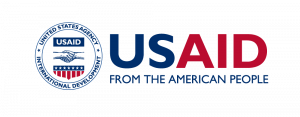Background: On December 5, 2023, the Interagency Gender Working Group’s (IGWG) Gender-Based Violence (GBV) Task Force held a virtual event, Examining Comprehensive Sexuality Education in Gender-Based Violence Prevention and Response Efforts, bringing together more than 120 participants from 39 countries.
Comprehensive sexuality education (CSE) is backed by three decades of empirical and scientific evidence and has been linked to specific health outcomes like increased use of contraception and reduced GBV. It teaches the skills needed to develop healthy relationships and can be a critical component of a holistic approach to prevent GBV among young people.
Event Overview: The event explored how CSE is being integrated within global GBV prevention and response programming, including how it can be leveraged as part of GBV prevention and response to strengthen this programming. Participants examined the role of GBV in CSE curricula, existing evidence around the effectiveness of integrated interventions, and opportunities to strengthen these approaches. The event aimed to better equip attendees to consider the potential to integrate CSE within existing and new GBV prevention and response efforts, identify where investments are needed to improve these efforts, and better understand the relationship between CSE curricula and GBV prevention and response.
First, representatives from UNESCO presented on how the organization’s updated International Technical Guidance on Sexuality Education: An Evidence Informed Approach was revised to enhance and expand key concepts to include GBV components. Next, a panel of experts discussed evidence, insights, and lessons learned from programs integrating CSE into GBV prevention and response efforts, and future opportunities and investments needed.
Panelists included:
- Avni Amin, Technical Officer, Violence Against Women, World Health Organization (Moderator)
- Shamah Bulangis, Co-chair, Transform Education, Philippines
- Jeannie Ferreras, National Programme Officer Gender and Youth, UNFPA, Dominican Republic
- Sheena Hadi, Executive Director, Aahung, Pakistan
- Remmy Shawa, Senior Project Officer- Health Education, UNESCO, South Africa
Read the blog sharing insights from the event here.




